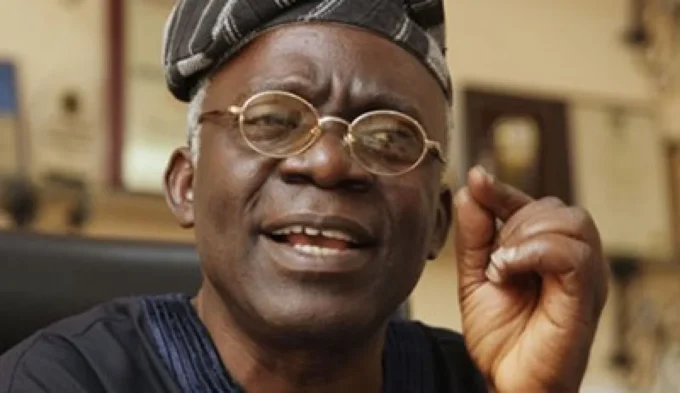Indigenous organizations in Saskatchewan and British Columbia are expressing support for Mary Ellen Turpel-Lafond in the wake of a CBC News investigation into her claims to Indigenous ancestry.
But some Indigenous scholars are calling on the prominent academic and former judge — she is a professor at UBC and was on the bench in Saskatchewan — to answer the questions it raised.
For decades, Turpel-Lafond has claimed to be a treaty Indian of Cree descent. However, when challenged, she has refused to provide evidence of her claims.
On Wednesday evening, hours after CBC’s story was published, the Union of British Columbia Indian Chiefs (UBCIC) said in a statement Turpel-Lafond “has been a fierce, ethical, and groundbreaking advocate for Indigenous peoples for decades.”
Her integrity “is beyond reproach,” the organization said.
The UBCIC also said CBC has no business investigating Turpel-Lafond’s — or anyone else’s — claims to Indigenous identity.

“Investigations into the ancestry of individuals, filled with personal photos and digging into private matters, does not move justice, rights implementation, and reconciliation forward,” it said.
“We also wonder if Dr. Turpel-Lafond’s outspoken advocacy has unfairly made her a target.”
The Saskatoon Tribal Council pointed out that Turpel-Lafond has been accepted as a member of the Muskeg Lake Cree Nation in Saskatchewan.
“Our kinship is defined by First Nations and not by the media or Canadian government,” the council said in a statement issued Thursday.
None of the organizations addressed the fact that Turpel-Lafond has failed to offer evidence of her ancestry. Experts note that membership in a First Nations community does not make one Indigenous.
Turpel-Lafond says her father was Cree and was raised by her grandparents, Dr. William Nicholson Turpel and his wife Eleanor. However, genealogical records show that William was of Irish, German and U.S. ancestry, while Eleanor was born in England to British parents.
Turpel-Lafond declined to explain this when asked by CBC News.
She has also refused to show her status card or even indicate if she has one. All treaty Indians — those whose relatives are on treaty lists with the Canadian government — are full status Indians and would have such cards.
“I have not and will not be sharing any private confidential personal records with any media outlet,” Turpel-Lafond wrote in an email to CBC News.
Calls for answers
Kim Tallbear, an Indigenous professor in the faculty of Native studies at the University of Alberta, said, after reviewing CBC’s story, that she concluded: “I don’t believe that [Turpel-Lafond] is Indigenous.
“The documentation seems pretty solid to support who her parents were, who her grandparents were,” she said. “The evidence is overwhelming.”
Tallbear says there is a growing problem in Canada of non-Indigenous people pretending to be Indigenous to take advantage of certain benefits.
She says, in her view, Turpel-Lafond’s claim to Cree ancestry opened doors for her career development.
“This has given her entrée to communities. It’s given her entrée to trust,” she said. “It has given her a leg up in many ways. We know that. That’s obvious.”

If Turpel-Lafond is offended by queries about her ancestry, maybe she shouldn’t have publicly talked about it for years, says Michelle Good, an Indigenous author (Five Little Indians) and retired lawyer from the Red Pheasant Cree Nation in Saskatchewan.
“If a person feels that their identity is something that should be privately held and secreted away, then perhaps they shouldn’t be proclaiming themselves as such publicly.”
Good says, in her view, Turpel-Lafond has some obligation to answer questions.
“If she says that she in fact knows that there is Indigenous ancestry, then for the people that she claims to love and support and to dedicate her life to, she should bring that [evidence] forward, she should bring that publicly out.”
The questions about Turpel-Lafond are hitting the Indigenous legal community hard, according to Jean Teillet, an Indigenous rights lawyer of Métis ancestry.
“I think we all have a mix of reactions,” she said. “Everything from hurt and feeling betrayed to questioning to trying to understand better.”

Teillet says she has worked with Turpel-Lafond from time to time since the early 1990s and never doubted that she was Indigenous.
But she says, the article had “troubling” details.
Teillet says she has closely examined the issue of false claims of Indigenous identity. Last year, she was retained by the University of Saskatchewan to investigate Carrie Bourassa, a professor who had claimed to be Métis, Anishnabe and Tlingit. Bourassa resigned from the university after that investigation was completed. Its conclusions were not made public.
Teillet says there are many people falsely claiming Indigenous identity across Canada — in the arts, academia, government and other sectors — and that the consequences are devastating.
“For every time they publish an article, for every time they get an appointment as an Indigenous judge, they’re taking that opportunity from an Indigenous person,” she said. “They’re hogging the microphone.
“My feeling is that they may do brilliant work and I support the work they do. And has it been helpful? Absolutely. But did they have to do it in red face?”













Leave a comment